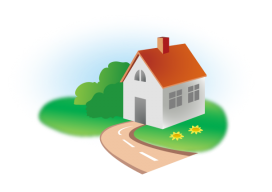
Parent & Family Support
Managing your Healthcare
As you become a teen and then young adult, your emotional and physical needs change. It is also during this time when you are learning to become less dependent on your parents/family members. It is a learning process and your family and medical professionals can assist and guide you as you begin to take charge of your own medical care.
Tell Me Again What it is . . .
ADHD stands for attention deficit hyperactivity disorder, a condition with symptoms such as inattentiveness, impulsivity, and hyperactivity.
Autism spectrum disorder (ASD) refers to a group of comple

differences in brain development which are characterized, in varying degrees, by difficulties in social interaction, verbal and nonverbal communication and repetitive behaviors.
Cerebral Palsy affects body movement, muscle control, muscle coordination, muscle tone, reflex, posture and balance. It can also impact fine motor skills, gross motor skills and oral motor functioning.
Diabetes is a group of metabolic diseases where the body’s pancreas does not produce enough insulin or does not properly respond to insulin produced, resulting in high blood sugar levels over a prolonged period.
Dysgraphia is a condition that causes trouble with written expression. Read “My Life with Dysgraphia” here.
Dyslexia is a language-based learning disability.
Mental Health – Talking about your own mental health struggles can be challenging. This tip sheet can help!
Obsessive Compulsive Disorder (OCD) causes severe anxiety and involves both obsessions and compulsions that interfere with normal healthy activities.
Seizures happen when your brain cells, which communicate through electrical signals, send out the wrong signals. A seizure is an event and Epilepsy is the disease involving recurrent unprovoked seizures.
Sickle Cell is a genetic blood disorder.
Healthcare Information for Youth and Young Adults
Do you wonder what you can do about acne? Why are you always tired and wanting to nap? Do you have questions about diets, your weight or personal hygiene? Check out these resources!
Impact on Health and Wellness – Adolescence
Girlshealth.gov offers girls reliable, useful information on health and well-being. We cover hundreds of topics, from getting your period to stopping bullies, and from getting fit to preventing sexually transmitted infections. We make our pages clear and fun, and we make sure to answer key questions girls ask. Girlshealth.gov is committed to empowering girls to create strong, positive relationships and happy, healthy futures.
Health Transition
Health transition means moving from pediatric to adult health care. It includes finding the right doctors, learning about your own health needs and the skills you need to advocate for yourself.
Frequently Asked Questions from GotTransition
Taking Charge of My Health Care – Transitioning from Pediatric to Adult Healthcare: A Guide for Young Adults with or without Disabilities (In Spanish) This booklet will empower adolescents and provide the needed tools to become more independent and take charge as they move from pediatric to adult health care.